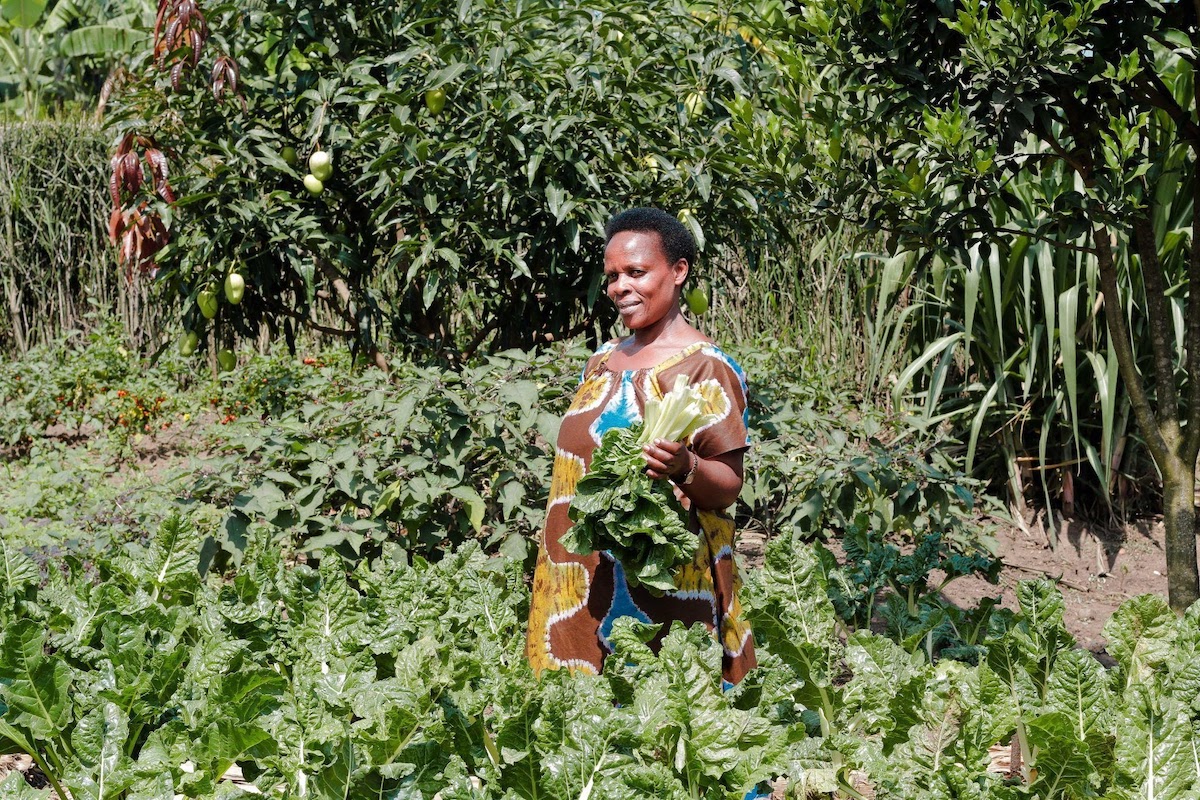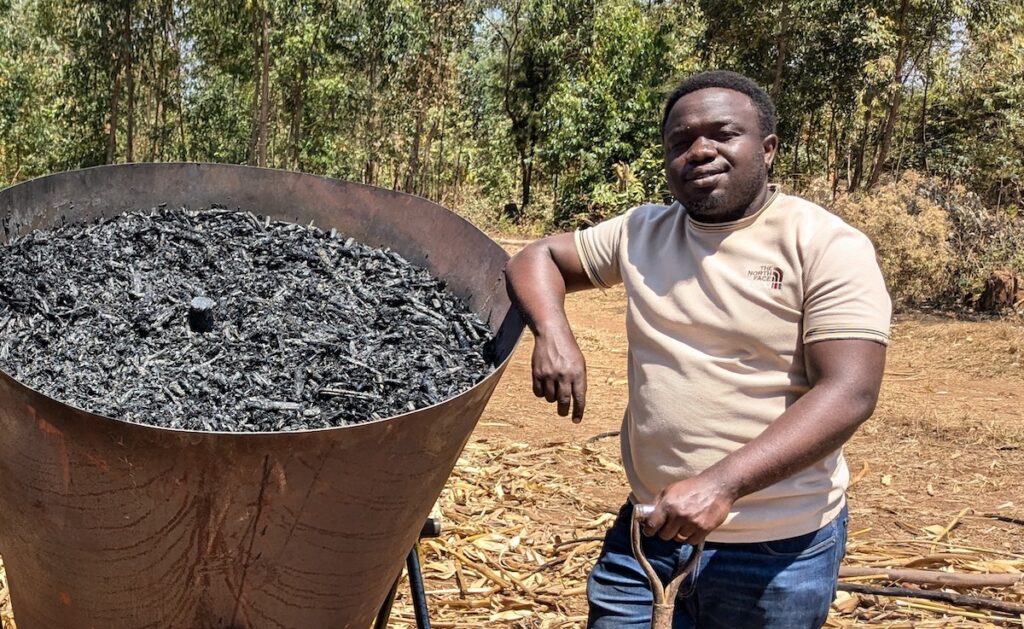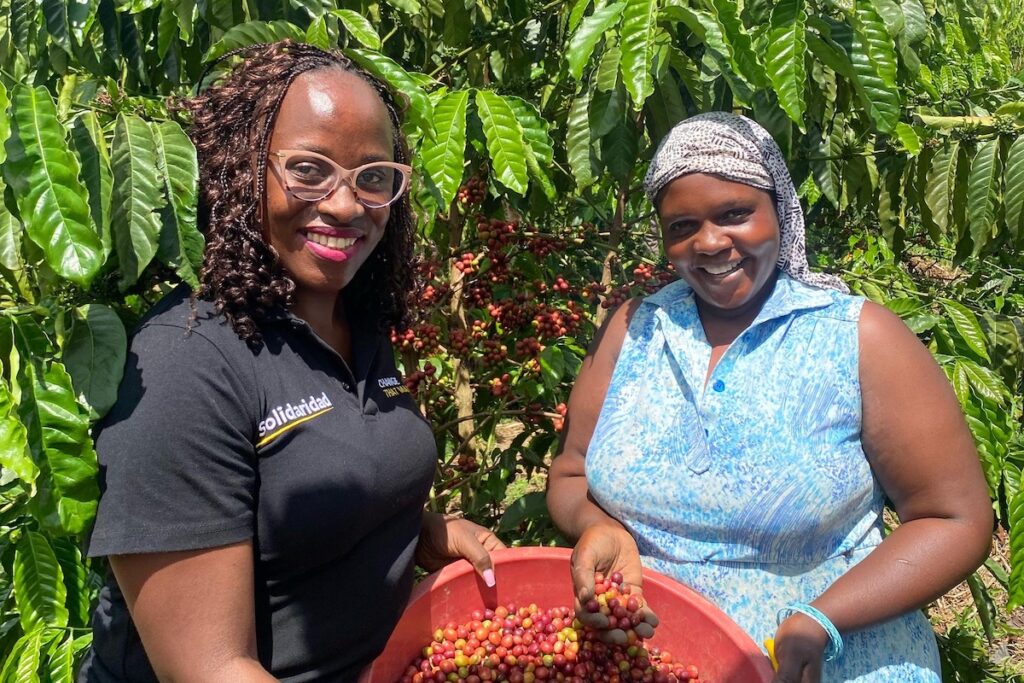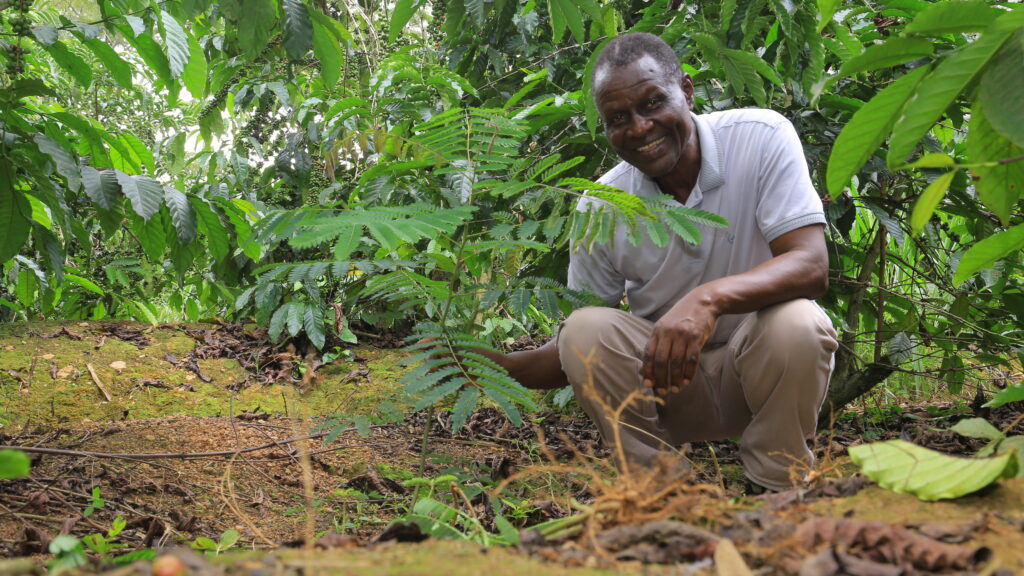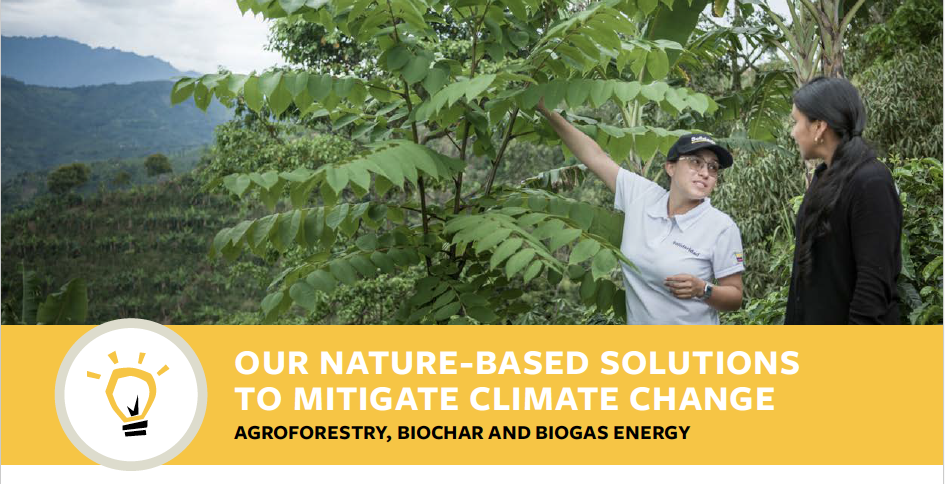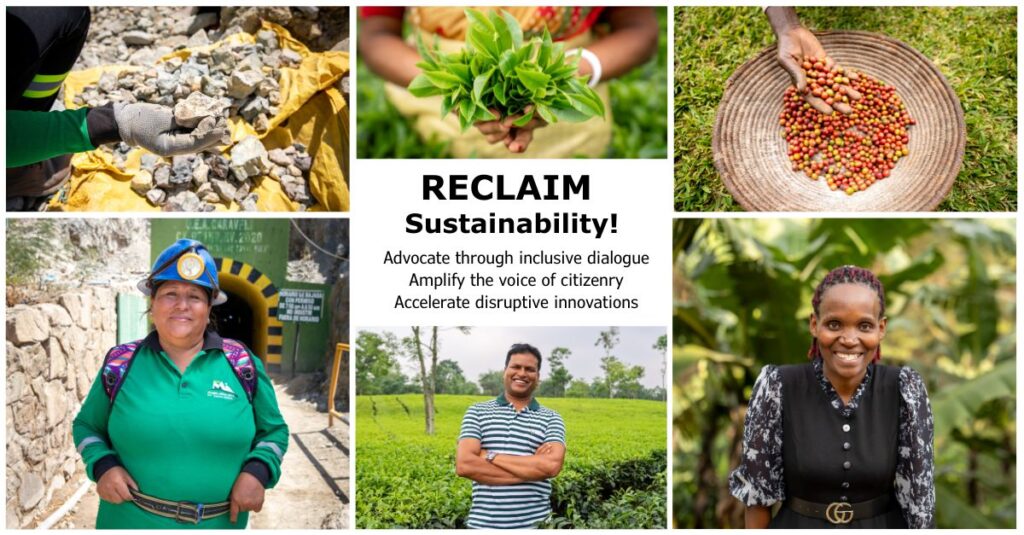Across sub-Saharan Africa women are the unsung heroes responsible for about 60 to 80 percent of food production, as well as domestic work including fuel and water provision — yet in our local communities they have little access to or control over natural assets, such as land, water, and ecological conditions, that create opportunities for a better life. Limited ownership of and control over assets greatly affects their capacity to benefit from cash crops, such as coffee and tea, as the proceeds usually go to the men who own coffee trees and land.
Although a number of initiatives have been implemented to spur and support income diversification efforts to improve women’s livelihoods, such initiatives tend to increase the burden on women, particularly those who continue to play other low paying or unpaid on-farm roles. Therefore, efforts directed towards the diversification pathway for women need to consider innovative options that increase women’s incomes and livelihoods without increasing their burden.
Between 2018 and 2019, the Practice for Change (PfC) Coffee Resilience Programme delivered community-based training to couples in Kapchorwa District, Eastern Uganda to foster gender mainstreaming for sustainable value chain development. The joint gender inclusion household training was delivered using the Solidaridad Gender ABC Strategy and Gender Action Learning System (GALs) methodologies.
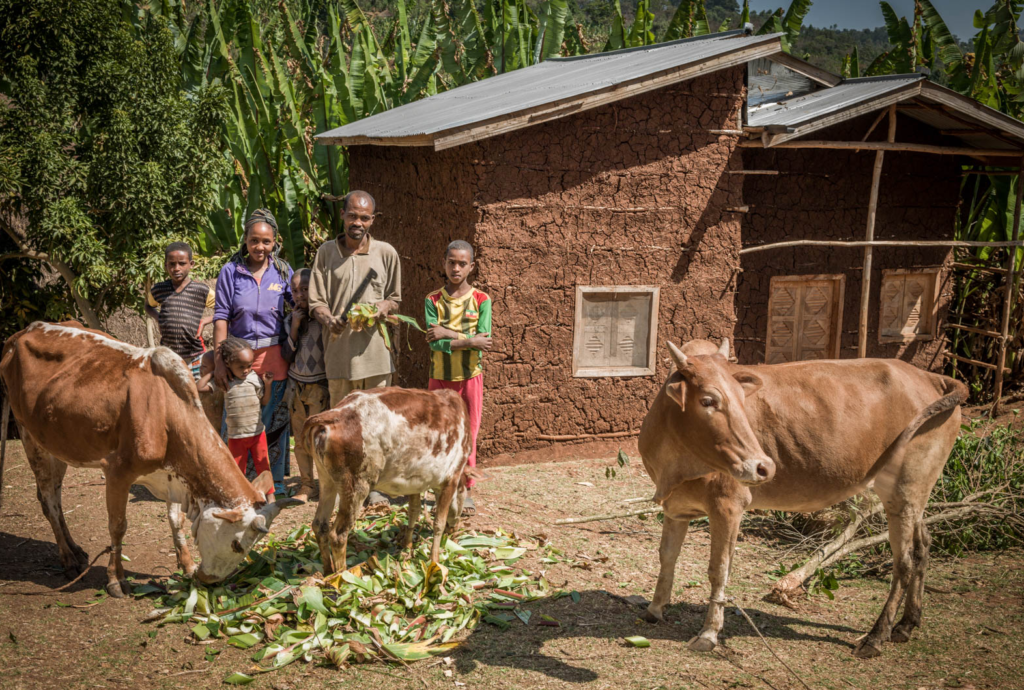
Agroecology for food systems transformation?
Nancy Rapando and Emmanuel Ochola Matsaba analyze gaps in the existing food systems across Africa and lay out a vision for sustainability.
Putting Women in Uganda on a Path of Success
Kapchorwa District, Mount Elgon region is one of the Arabica coffee growing areas in Uganda. About 77 percent of the farm acreage in the region is used for coffee production. Between 2018 and 2020, Solidaridad East and Central Africa in partnership with Kawacom Uganda Ltd reached 705 women in Kapchorwa with the aim of improving their incomes. In the three-year period, the targeted households recorded an increase in coffee productivity and diversification ventures leading to improved incomes for the households. The incomes increased by over 20 percent from an annual average of 1,847,130 UGX at project baseline in 2018 to 2,308,912 UGX at project endline in 2020; an equivalent of Euro 446 to 557.50. Notably, positive shifts were realized in the Sebei, Mount Elgon region, a largely patriarchal society that considers productive assets like land and high value crops like coffee as properties for men.
Closing the Gender Gaps in Coffee, One Household at a Time
Following the joint gender inclusion household training, Ms. Justine Chesang was allocated 200 coffee trees by her spouse – a decision that has significantly improved Ms. Chesang’s control and benefits from coffee production.
Although my spouse allocated me 200 coffee trees, decisions on the use of our coffee proceeds were still made by him. The income from coffee was mostly used to cater for ‘major’ family expenses such as school fees and household construction.
Justine Chesang
Despite having access to the family’s coffee farm, income from coffee alone could not adequately cover Justine’s family needs, with noticeable gaps in the family’s food and nutrition security, as well as children’s health. Moreover, the lack of control over the family’s income necessitated that Justine diversifies to create new revenue streams for their household.
Beyond Coffee; Building Micro-Enterprises to Improve Household Income and Nutrition Outcomes
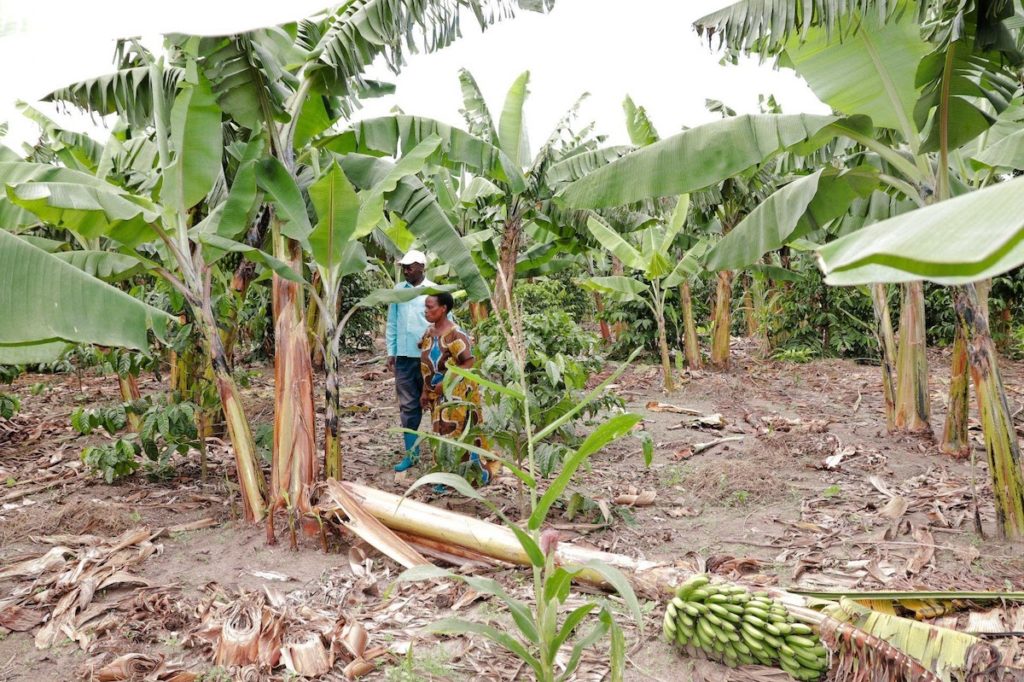
On-farm diversification has proved to be a promising approach for smallholder farmers to adapt and build resilience. Current diversification models employed by local communities are used as catalysts for socio-economic growth and development. To this end, the Practice for Change (PfC) Coffee Resilience Programme trained a total of 705 women on coffee agronomy best practices and supported them to establish micro-enterprises to improve household income and nutrition outcomes. The micro-enterprises included:
- Improved goat rearing (120 households trained on goat rearing and provided with improved boer goats).
- Early maturing beans (50 households provided with 25 kilograms of the National Agricultural Research Organization (NARO) bean 16).
- Nutritious cooking bananas (‘matoke’) varieties (100 households provided with 50 suckers each).
- Fruits and vegetables production for increased income and home nutrition (22 households trained and supported to establish kitchen gardens to produce tomatoes, assorted collards and onions among other farm produce for home consumption).
Inching Closer to Sustainable Diversification for Women Coffee Farmers
In addition to improving household food and nutrition security, diversification has created new opportunities for women to earn additional income from the sale of surplus food crops, fruit and vegetables and milk produce. The diversification efforts have been boosted by the steadily rising demand for healthy local foods and local markets driven by the Covid-19 pandemic which has affected an estimated 120,000 people in the country (September, 2021).
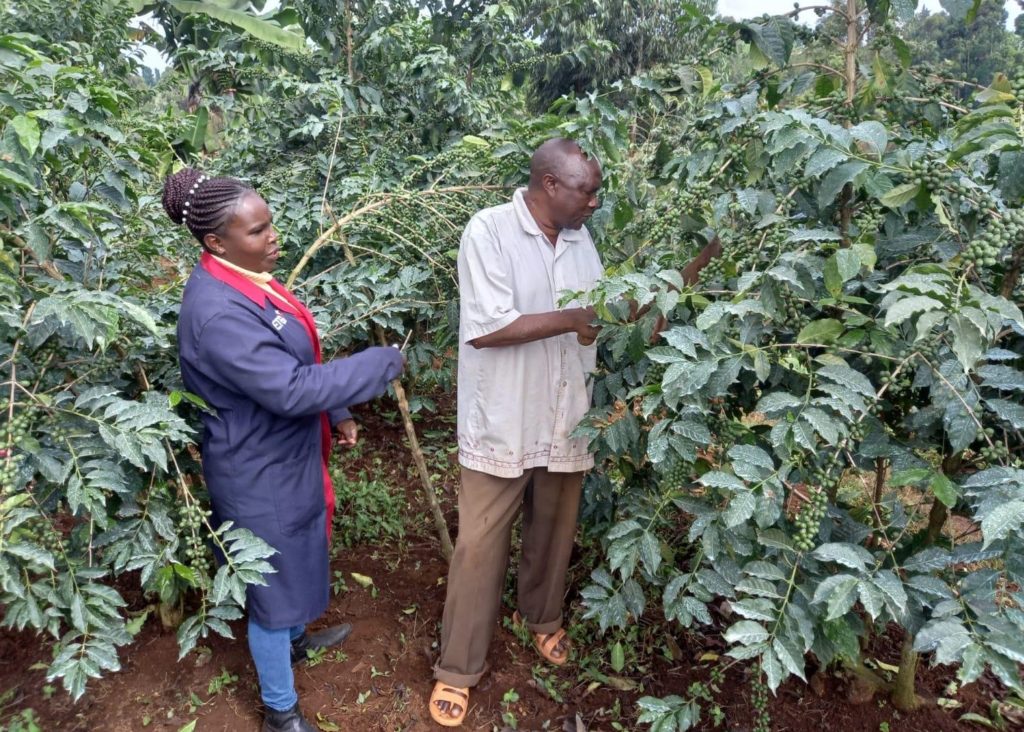
“Coffee came to my rescue”
When Jackson Ngari lost his hospitality job due to the Covid-19 pandemic, he turned to his family coffee farm to see him through.
For example, the establishment of on-farm micro-enterprises (beans, ‘matoke’ and goat keeping) has also increased access to food for household consumption. Notably, goat keeping has proven to be suitable for on-farm diversification for women. Compared to other diversification activities, improved goat rearing is less time consuming when done under semi-intensive cut and carry systems and does not require significant investments in veterinary services. Furthermore, the goat breeds provided by the PfC project produce multiple kids and also mature within a shorter period of time. The goat kids and mature goats can be sold to generate additional income.
On-Farm Diversification – a Stable Path for Equitable Growth and Development
Based on Solidaridad’s experience in building sustainable supply chains and efficient local systems, supporting diversification models has contributed to improved household nutrition, and incomes in coffee and other value chains. On-farm diversification has reduced the income inequality between women and men, increased women’s access to and control of household resources and income and involvement in decision making. The participation of women in diversification activities has also contributed to a decline in gender-based violence and increased sharing of household responsibilities between spouses. Importantly, diversification has provided a stable path for equitable growth and development for communities by increasing opportunities for women in coffee production to engage in business and acquire leadership skills.
A recent UN study shows that more than 60 percent of women and men in East and Southern Africa experienced complete loss or decline in incomes since the outbreak of the Covid-19 pandemic. The pandemic further deepened poverty rates and continues to entrench gender disparities with more women expected to be pushed into extreme poverty. Against this backdrop, there is a need for concerted efforts from private and government organizations, individuals and communities to implement novel and scale up high-impact interventions such as on-farm diversification to cushion families from the economic shocks. In addition to preventing more households from sinking into extreme poverty, such interventions could fast track inclusive and sustainable post-Covid recovery, one of the key priorities for many countries worldwide.

